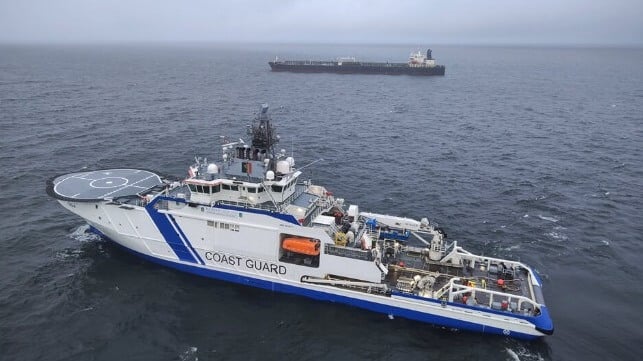EU Announces More Tanker Sanctions to Pressure Russia Ahead of Peace Talks

Leaders from across the European Union reported that an agreement has been reached on the 17th round of sanctions on Russia and those who support the war effort in Ukraine. They took to the airways and social media to herald the agreement ahead of the proposed peace talks in Turkey on Thursday, May 15, while also threatening to increase the pressure on Russia if the talks do not proceed and the 30-day ceasefire does not come about.
“I welcome the agreement on our 17th sanctions package against Russia,” wrote Ursula von der Leyen, President of the EU Commission, on social media. “This war has to end. We will keep the pressure high on the Kremlin.”
The posting highlighted that the package would encompass an additional 189 shadow fleet tankers (France’s Foreign Minister said it is 193 tankers) as well as “further restricting access to battlefield technology.”
The package dramatically expands the number of tankers from the 73 that the EU had listed as of February. It also follows the UK, which last week also rolled out what it called its largest sanction package with 100 tankers, bringing its total to over 230 listed vessels. Earlier reports had said the EU was targeting 100 tankers.
The full details of the new sanctions have not been released pending the official approval which is expected to come on Tuesday, May 20, when the defense foreign ministers convene. France 24 is reporting that the package also targets companies in Vietnam, Serbia, and Turkey that are reported to be supplying materials to Russia, as well as sanctions on Russian individuals linked to cyber attacks. Other elements reported by Reuters include 30 companies and 75 individuals linked to the Russian military and a specific element to sanction efforts that were linked to damaging subsea cables and other critical infrastructure.
Officials, however, are saying the package was “relatively limited” compared to previous packages, reports France 24, as they are finding it more difficult to agree on the targets.
France’s Minister for Europe and Foreign Affairs Jean-Noël Barrot linked the latest package to Putin's refusal for a ceasefire. During an interview, he predicted the EU would have to go further, saying that it may require “devastating sanctions that could suffocate once and for all Russia’s economy.”

that matters most
Get the latest maritime news delivered to your inbox daily.
“If Putin continues to dodge the planned peace talks in Turkey, we will turn up the volume again,” wrote Barrot on social media.
S&P Global, however, last week highlighted that with oil having slipped below the $60 price cap, exports were coming from Russia on EU-linked tankers. In a report it wrote, that those tankers were carrying more of the oil exports than the shadow fleet. The EU, however, has also outlined its plans to end Russian energy imports setting 2027 as a key target and completing the phase out of gas imports by 2030.
